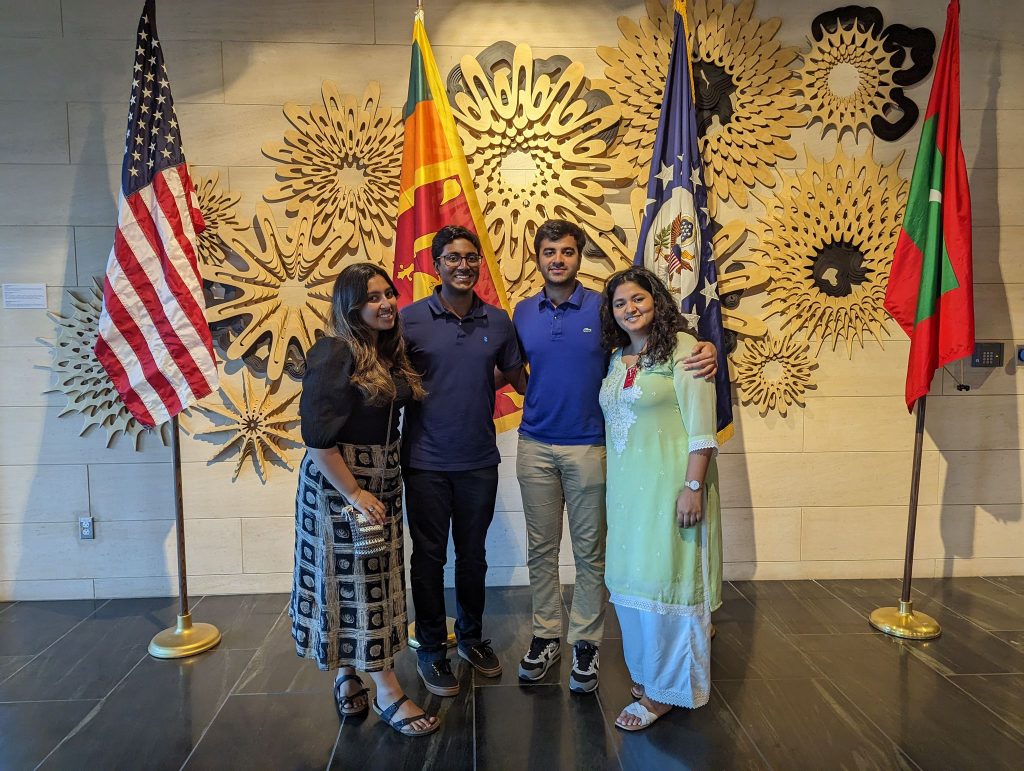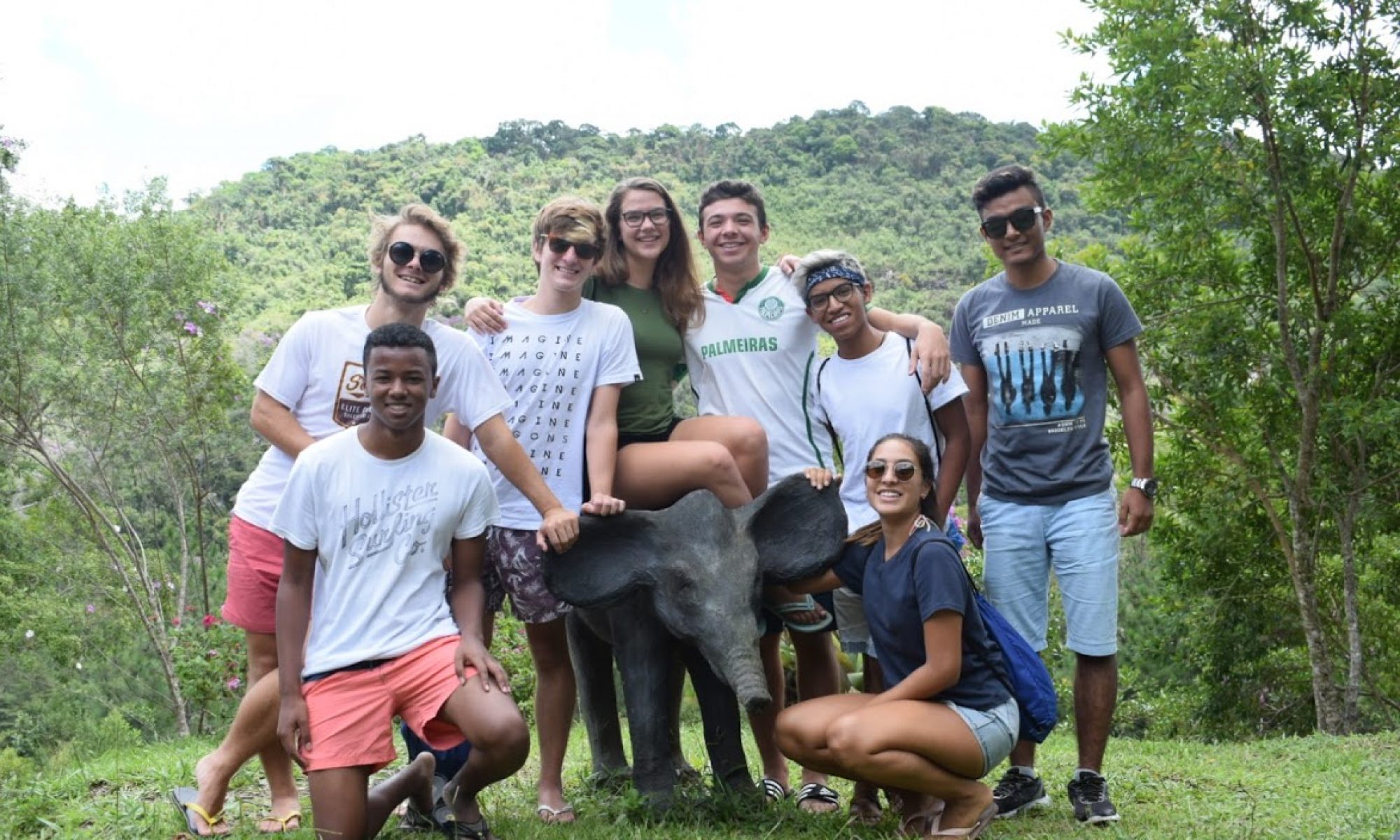
By: Arnav Patra
This week, we have made great progress with our research trip in Sri Lanka. The four of us have found contacts and begun interviews with a number of Sri Lankan leaders in business, nonprofit, policy and government circles.
Wednesday was a packed day of interviews and meetings. I began my day on Wednesday by joining Arjun for a visit with the Regional Centre for Strategic Studies, a policy think tank focused on South Asia and international affairs. We had the opportunity to meet other undergraduate students working at RCSS, as well as the director, Professor Nayani Melegoda. The undergraduates from Sri Lanka shared with studying international relations in Sri Lanka is like and discussed Sri Lanka’s foreign policy, as Arjun is researching Sri Lankan foreign policy post Civil War. The other students showed us around the RCSS library and even shared some “crocodile buns” (traditional Sri Lankan bread with sugar shaped like a crocodile).
Next, I joined Sabah for an interview with Jezima Ismail, one of the most prominent Sri Lankan Muslim activists and the founder of the Muslim Women’s Research and Action Forum. Sabah is studying the experiences of Muslim women in Sri Lanka, and Jezima gave her an overview of the history of Sri Lanka’s Muslim community drawing from her experience dating back to the 1950s. In
the course of her career in activism she led nearly 70 projects focused on women, education and the Muslim community in Sri Lanka. Next, I led an interview with economist Dr. Roshan Perera who has worked with the central bank and is affiliated with the Advocata Institute think tank in Sri Lanka. I am studying the impacts of the pandemic and economic crisis on Sri Lanka’s small businesses. Dr. Perera provided insights into the difficulties faced by small businesses, including the difficulty of starting a small business prior to the crises Sri Lanka has faced in recent years. Dr. Perera also discussed how Sri Lanka compared with other countries in the region and the Global South, providing insights into lessons Sri Lanka can learn given the presence of the IMF and the recent economic crisis. We ended our day as a group by visiting Advocata, one of the premier economic
policy think tanks in Sri Lanka and meeting the CEO, Dhananath Fernando.
On Thursday, we had the chance to visit the United States Embassy in Colombo. We briefly met the Ambassador, Julie Chung and had a meeting with the Chief Economic and Political Officer, Susan Walke. While this was not a formal interview, visiting the embassy allowed us to learn about the American view on the issues we are all studying in Sri Lanka. The embassy recently opened a new building in September, showcasing beautiful Sri Lankan art, and has over 500 people working for it, both local Sri Lankans, and American diplomats. The embassy is also located on the waterfront of Colombo, and offers a beautiful view of the Indian Ocean, as well as the Colombo Port, which has been a center of geopolitical activity with competing Western, Chinese and Indian interests in Sri Lanka.
Following the embassy visit, I interviewed Shiran Fernando, an economist from the Ceylon Chamber of Commerce, seeking to understand the views of an organization that represents the business sector in Sri Lanka. We wrapped up our day with dinner at the Jetwing hotel, recommended to us by a Sri Lankan classmate, with a great view of the Colombo skyline. With these days of interviews, all of us found new connections and perspectives on our topic areas and look forward to spending more time in Sri Lanka getting to know and understand this country with its unique place in the world right now.
